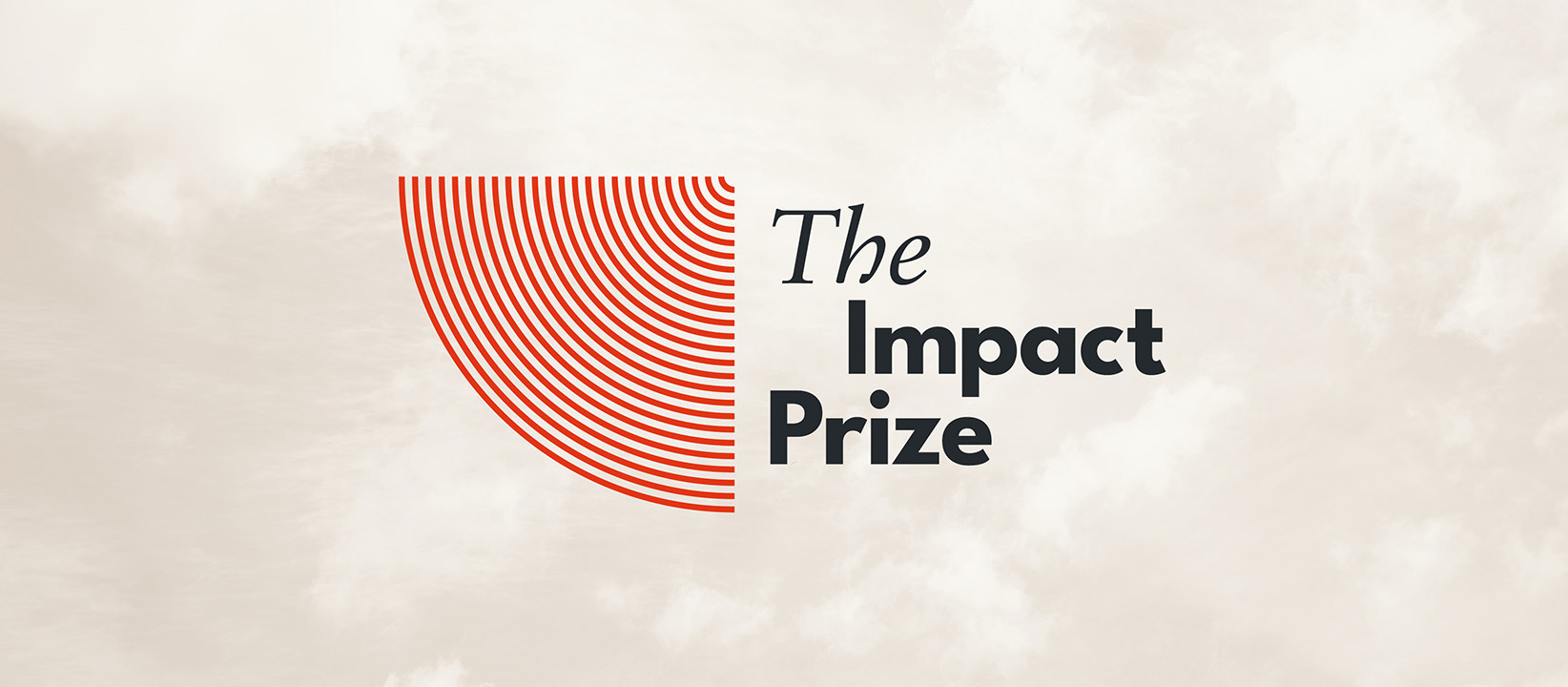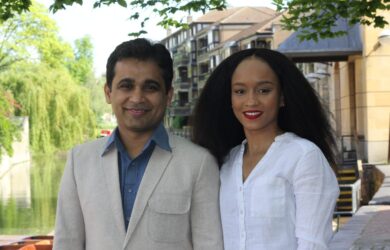
The eight winners of Gates Cambridge's Impact Prize to celebrate its 25th anniversary have been announced
Whether a contribution as small as a podcast that touches a single human heart or as vast as quantum science’s potential to tackle a range of global challenges, the possibilities we set in motion are infinite.
Eilís Ferran
What unites a wildlife cameraman, a quantum physicist and the co-founder of a solar energy business? For Gates Cambridge Scholars at the University of Cambridge it is the desire to improve the lives of others.
The scholars, all international postgraduate students, come from all walks of life and all disciplines, but they are keen to leave a positive mark on the world, to have real impact.
The Gates Cambridge Scholarship, the University’s flagship scholarship programme for international postgraduate students, is celebrating its 25th anniversary this year and it kicks off with a ceremony celebrating the impact scholars have made over the last quarter century.
The Impact Prize ceremony takes place on Friday and will see eight scholars presented with an award for their achievements. They symbolise the many different ways that scholars have been having an impact across the world and the enormous ripple effect that Gates Cambridge has had in such a short space of time.
The Gates Cambridge Scholarship was set up in 2000 following an historic donation from the Gates Foundation. Since 2001 2,156 scholars have been selected, representing 112 different countries.
The eight winners of the Impact Prize include current scholars and alumni. They will receive £5,000 each and be invited to participate in our 2025 anniversary events. They are:
Professor Urbasi Sinha [2002], a leading quantum physicist and professor at the Raman Research Institute in India and a Canada Excellence Research Chair at the University of Calgary, Canada. Professor Sinha has had a transformative impact on quantum computing in three areas: fundamental quantum science, policymaking and practical application. Named one of Asia’s Top 100 Scientists in 2018, she has also been a driving force behind India’s National Quantum Mission and the Open Quantum Institute (OQI).
Alex Vail [2010 pictured above], a BAFTA award-winning wildlife cinematographer on leading natural history programmes since finishing his PhD in animal behaviour, including Blue Planet II, Planet Earth III, Seven Worlds, Our Planet, Frozen Planet II, Mammals and Asia.
Alexandra Grigore [2012], the Chief Strategy Officer and Co-Founder of Simprints, the world’s first open-source biometric ID platform with privacy at its core. Alexandra co-founded the non-profit company at Cambridge with two fellow Gates Cambridge Scholars and was previously its Chief Product Officer.
Mona Jebril [2012], an education and health researcher from Gaza who has experimented with all sorts of different genres, from animation to poetry, to communicate her research and to highlight the issues faced by academics from conflict zones. Her podcast, A Life Lived in Conflict, gives a voice to people in conflict areas and from different disciplines.
Emily Kassie [2016], an Emmy and Peabody-nominated investigative journalist and filmmaker who was named on Forbes 30 under 30 in 2020. Her most recent film, Sugarcane, which she co-directed and co-produced, won the US Documentary Directing Award at the Sundance Film Festival among a host of other awards and is among the 15 films that made the shortlist in this year’s Oscars’ Best Documentary Feature category. It looks at the long-term impact of systematic abuse on indigenous people in Emily’s home country, Canada.
Emma Houiellebecq [2016/2021], whose PhD explores a new systems-based approach to building resilience in conflict regions which takes into account the whole chain of political, economic, social and technical issues that affect vital infrastructure. Through fieldwork in some of the world’s most vulnerable regions – Ukraine, Gaza, Lebanon and Venezuela – it builds on her previous work for the International Committee of the Red Cross (ICRC) on ensuring the resilience of vital infrastructure.
Anoop Tripathi [2022], whose research on cross-hybridisation of plants aims to develop climate-resilient crops that could ensure food security for millions of people, especially in the regions that are most affected by climate change.
Uchechukwu Ogechukwu [2024], co-founder of solar energy company Greenage Technologies Power Systems Ltd. It aims to harness renewable energy to combat energy poverty and environmental degradation in Africa. Now doing an MPhil in Technology Policy, Uche is working to help fellow African student entrepreneurs innovate and scale theirs.
Eilís Ferran, Provost of Gates Cambridge, said: “We are so happy to be celebrating Gates Cambridge’s quarter century by highlighting the achievements of our eight Impact Prize winners. They showcase the full diversity of scholars’ impact across the world in fields ranging from business, media and film to humanitarian work to research.
“For 25 years now, students from across the globe have come to Cambridge to work with us and become part of our community. As this Award shows, when they go back out into the world as Gates Cambridge scholars, they make it a better place in ways no one could have predicted at the start. Whether a contribution as small as a podcast that touches a single human heart or as vast as quantum science’s potential to tackle a range of global challenges, the possibilities we set in motion are infinite. This is the heart – and the wonder – of the Gates Cambridge mission. To create a limitless ripple effect of possibility and change.”
The judges of the Prize were Professor Sir Leszek Borysiewicz, the 345th Vice-Chancellor of the University of Cambridge, former Chair of Cancer Research UK and the former Chief Executive of the Medical Research Council; Joe Cerrell, The Gates Foundation Managing Director for Europe, the Middle East and East Asia; Professor Tebello Nyokong, Distinguished Professor of Chemistry at Rhodes University and the 2009 L’Oréal-UNESCO Award for Women in Science recipient; and Dr Gillian Tett, the 45th Provost of King’s College London, Moral Money Co-Founder and Member of the Editorial Board & Columnist at the Financial Times.
*To read the full announcement, click here.












